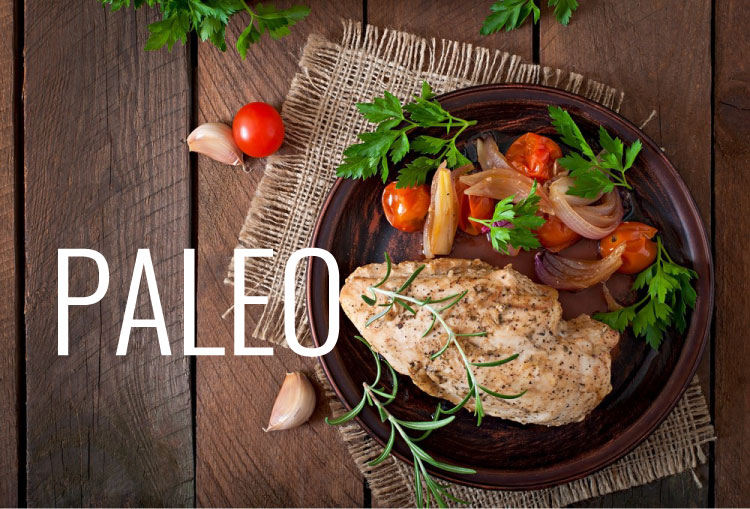Why the Paleo Diet is Nonsense
Aug 8, 2016

During the paleolithic age (about 2.6 million years ago), our hominin ancestors ate a diet that consisted mainly of fish, nuts, berries and game, and hunted using tools made from stone or bone.
Their nutritional map was pretty much whatever they could scavenge from the land. It was, after all, a time when basic human intelligence and technology was in its extreme infancy.
One thing that’s certain though — the cavemen of that time were foraging for the barest of essentials to simply survive, and the thought that, one day, modern humans would adopt their tenuous version of sustenance would make about as little sense to them as humanity suddenly abandoning cell phones in favor of smoke signals.
But it happened. The prolific “Paleo Diet,” and the far-fetched notion of returning to our Cro-Magnon diet did indeed become reality. People everywhere went wild over a “new” diet with “old roots,” where a hunter-gather-style, organic menu was suddenly king and foods like dairy, grains, starches, and even legumes were on the chopping block.Here’s the thing — the Paleo Diet? It’s pretty much nonsense.
Okay, okay, hear me out. While it’s true that eating a diet consisting wholly of fruits, lean meat, fish and vegetables — and cutting out processed sugar and carbs — can result in weight loss (for obvious reasons), that’s pretty much where the benefits end.
First and foremost, it’s impossible to replicate a Paleo Diet. Besides the fact that species consumed in the Paleo Diet (fruits/veggies, animals, etc.) are dramatically different than the ones today, there’s literally no way for lay consumers to test produce and meats that claim to be organic.
“We can’t take organic off the counter and say you’re lying,” says Dr. Gabe Mirkin, a fitness guru, long-time radio host and sports medicine doctor with more than 50 years of practice.
“The industry, it’s rampant with fraud,” he adds.
Barbara King, a biological anthropologist at the College of William and Mary in Virginia, says humans at the time adapted to wherever they lived.
“There was no single hunter-gatherer foraging strategy, and genes no more ‘designed’ our eating behavior than they designed our language or our ways of relating between the genders,” she said in an NPR report.
In other words, it’s not as Paleo Diet champions claim, a diet based on the way humans’ genes are “supposed to be.”
In fact, humans’ genes, like food, have only evolved and adapted to be stronger.
“All of the foods in North America today have been transformed through selective breeding from those that were available to our ancestors,” Mirkin says in his online blog. “They are larger, sweeter, fattier and more prolific. But they still contain the same nutrients as the ancient wild species.”What's Paleo's Beef with GMOs?
Much of the Paleo Diet culture has revolved around pushes to get genetically-modified (GMO) foods off the shelves, something else Mirkin says is ridiculous.
“We have no data that GMO is harmful,” Mirkin says, referring to a meta-study of about 2,000 peer-reviewed studies that found no evidence that GMOs hurt humans.
In fact, GMOs undergo anywhere from 7 to 10 years of testing before they can be sold — way more than their organic counterparts.
The other side of the coin is the cost and intricacies of a Paleo Diet. Organic food is expensive, and cutting out carbs and refined sugar of any kind is extraordinarily limiting.So what can we take from all this?
Mirkin says, if you’re trying to lose weight, your best bet is to focus on portion sizes and eat plenty of fruits and veggies.
“All the data shows that people who eat the most whole grains, fruits, veggies, etc. have the least diabetes and healthiest weights,” he says.
Ready to try out a healthy, portion-controlled diet? Diet-to-Go offers four meal plans catered to meet your individual needs and help you lose weight safely and effectively.
------------------------------------------------------------------------------------
Author: Caitlin H
Diet-to-Go Community Manager
Caitlin is the Diet-to-Go community manager and an avid runner. She is passionate about engaging with others online and maintaining a healthy, active lifestyle. She believes moderation is key, and people will have the most weight loss success if they engage in common-sense healthy eating and fitness.










